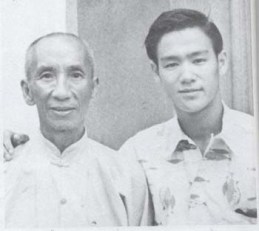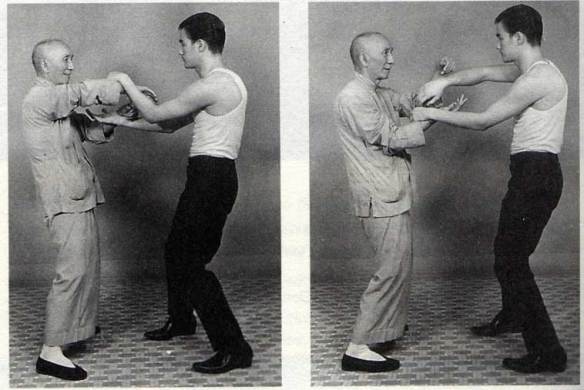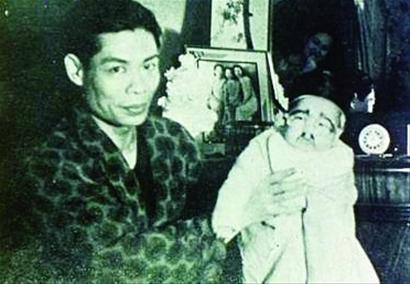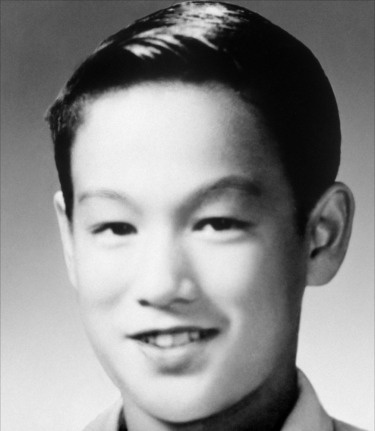The largest influence on Lee’s martial arts development was his study of Wing Chun. Lee began training in Wing Chun at the age of 13 under the Wing Chun teacher Yip Man in 1954, after losing a fight with rival gang members. Yip’s regular classes generally consisted of the forms practice, chi sao (sticking hands) drills, wooden dummy techniques, and free-sparring. There was no set pattern to the classes. Yip tried to keep his students from fighting in the street gangs of Hong Kong by encouraging them to fight in organized competitions.
After a year into his Wing Chun training, most of Yip Man’s other students refused to train with Lee after they learnt of his ancestry (his mother was half Chinese and half Caucasian) as the Chinese generally were against teaching their martial arts techniques to non-Asians. Lee’s sparring partner, Hawkins Cheung states, “Probably fewer than six people in the whole Wing Chun clan were personally taught, or even partly taught, by Yip Man”.However, Lee showed a keen interest in Wing Chun, and continued to train privately with Yip Man and Wong Shun Leung in 1955.










